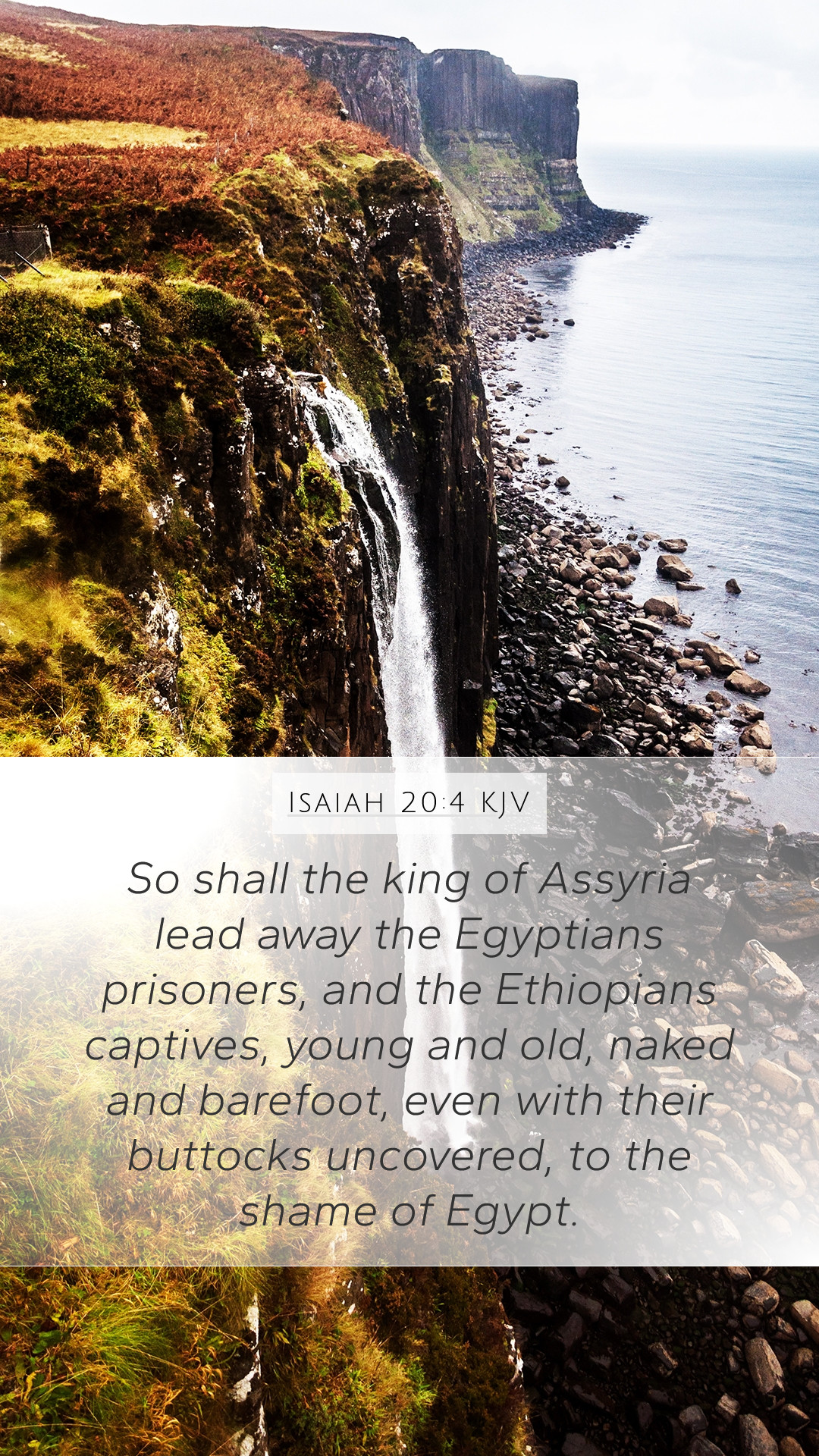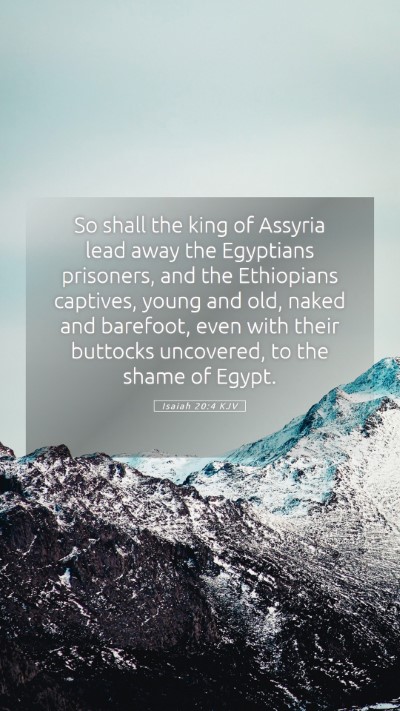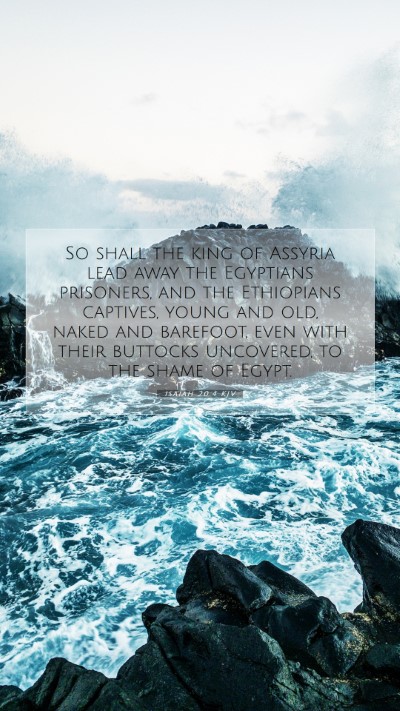Understanding Isaiah 20:4: A Comprehensive Bible Verse Commentary
Isaiah 20:4 reads: "So shall the king of Assyria lead away the Egyptians prisoners, and the Ethiopians captives, young and old, naked and barefoot, even with their buttocks uncovered, to the shame of Egypt." This verse serves as a powerful prophecy concerning the judgment that would befall Egypt through the Assyrian king, illustrating the consequences of their reliance on military might over divine protection.
Summary of the Verse's Meaning
The meaning of this verse encompasses various dimensions that can be gleaned from reputable public domain commentaries:
- Prophetic Warning: The imagery presented in Isaiah 20:4 is a stark warning regarding the fate of nations that turn away from God. As Matthew Henry notes, the captivity depicted here signifies not just physical defeat but also spiritual neglect.
- Shame and Humiliation: Albert Barnes elaborates on the profound humiliation that will ensue for Egypt. The description of the captives as "naked and barefoot" signifies total disgrace, illustrating the depths of their suffering. This aspect emphasizes the consequences of pride and self-reliance.
- The Sign of the Prophet: Adam Clarke points out that Isaiah's act of walking naked as a sign (as described earlier in the chapter) correlates directly to the prophecy that follows. It serves as a vivid illustration of the calamity that is to come, delivering a clear message to both Israel and Egypt regarding God’s sovereign judgment.
- The Fate of Nations: This verse can be related to the broader theme prevalent in the Book of Isaiah concerning how mighty nations, once proud, can easily fall to God’s judgment, thus serving as a historical lesson for Israel and other nations.
In-Depth Analysis of the Verse
This passage serves as an important focal point for sacred scripture analysis and Biblical exegesis. The historical context of Isaiah’s ministry plays a crucial role in understanding this prophecy:
- Context of Assyrian Dominance: At the time of Isaiah's prophecy, Assyria was a dominant force in the region. Understanding the political dynamics of the era is essential, as Egypt was considered a potential ally for Israel against Assyria.
- Implications for Israel: Isaiah’s warning serves as both a comfort and a challenge to Israel. By illustrating Egypt’s doom, he underscores that reliance on any power apart from God is futile, hence encouraging a deeper Bible study understanding among believers.
Theological Reflections
The theological implications of Isaiah 20:4 resonate with various themes throughout Scripture:
- Sovereignty of God: The text emphasizes God’s overall control over nations and history, a theme echoed in other scriptures such as Proverbs 21:1 and Psalm 22:28.
- The Reality of Judgment: The prophetic message serves as a reminder that the judgments of God can manifest in worldly acts of domination and disgrace, reinforcing the need for moral integrity among nations.
- Symbolism of Captivity: This imagery can also be seen as a foreshadowing of the ultimate captivity from sin that humanity faces, revealing the spiritual need for redemption found through Christ.
Practical Application of the Verse
Applying Isaiah 20:4 to daily life involves reflection on several areas:
- Self-Reliance vs. Divine Dependence: Just as Egypt blindly relied on human alliances, Christians are called to reflect on their own dependencies and seek trust in God alone.
- Understanding the Results of Pride: The shame described serves as a warning against pride both personally and collectively; the need for humility before God is paramount.
- Bible Study Insights: This verse can serve as a conversation starter in Bible study groups when discussing the themes of judgment and reliance on God versus man.
Cross References
To deepen understanding, the following verses serve as relevant cross references:
- Isaiah 31:1: A warning against seeking help from Egypt.
- Isaiah 37:18-20: God's deliverance despite the might of Assyria.
- Jeremiah 46:1-12: Prophecies concerning Egypt's fall.
Conclusion
Isaiah 20:4 is rich with meaning, offering significant insights for personal reflection and theological study. Understanding this verse fosters a greater Bible verse understanding that extends beyond its historical context, allowing believers to draw parallels to contemporary life.


